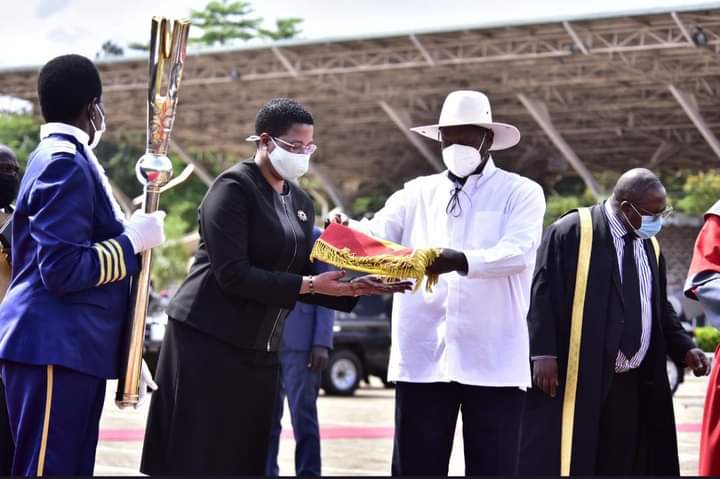By Gedion G. Jalata, CEO of Excellence International Consult
The 18th Ordinary Session of the Assembly of Heads of State and Government of the African Union, which was held in Addis Ababa, Ethiopia in January 2012 took a decision to establish Continental Free Trade Area (CFTA) by an suggestive date of 2017. The Summit also endorsed the Action Plan on Boosting Intra Africa Trade (BIAT), which identifies seven clusters. These are trade policy, trade facilitation, productive capacity, trade related infrastructure, trade finance, trade information and factor market integration.
As a continuation to this, African leaders held an Extraordinary Summit on the African Continental Free Trade Area from 17-21 March 2018 in Kigali, Rwanda, during which the Agreement establishing the CFTA was presented for signature, along with the Kigali Declaration and the Protocol on Free Movement of Persons, Right to Residence and Right to Establishment. In total, 44 out of the 55 African Union (AU) member states signed the consolidated text of the CFTA Agreement, 47 signed the Kigali Declaration and 30 signed the Protocol on Free Movement.
| Benefits of the CFTA The CFTA aims to create a single continental market for goods and services, with free movement of business persons and investments so as to pave the way for accelerating the establishment of the Continental Customs Union and the African customs union. The major objectives of this initiative among others are: Expand intra African trade through better harmonization and coordination of trade liberalization and facilitation regimes and instruments across Regional Economic Communities (RECs) and across Africa in general; resolve the challenges of multiple and overlapping memberships and expedite the regional and continental integration processes and enhance competitiveness at the industry and enterprise level through exploiting opportunities for scale production, continental market access and better reallocation of resources. The continental free trade areas offer benefits for Africa countries as it serves as a means of creating a better economic, social, and political as well as security atmosphere that could restore African identity and grant the people of Africa true freedom and a prosperous future. In line with the strategic objectives of the Union’s Agenda 2063 Initiative, the CFTA provides a lever that can be used to strategically position the continent to exploit its numerous trade and investment opportunities and contribute positively towards the structural transformation of African economies. Moreover, perusing the market integration agenda with broader framework of integration of the continent will enable African countries not only to benefit out of globalization but also resist the increasing pressure of globalization. CFTA, therefore, become the essential element for the sustainable development of Africa. An integrated Africa through CFTA would also command more respect in the world on accounts of its larger market and greater economic and military power and potential; more human and material resources. The CFTA expected to bring together all 55 member states of the African Union covering a market of more than 1.2 billion people, including a growing middle class, and a combined gross domestic product (GDP) of more than US$3.4 trillion. In terms of numbers of participating countries, the CFTA will be the world’s largest free trade area since the formation of the World Trade Organization. As estimated by the UN Economic Commission for Africa (ECA) the CFTA has the potential both to boost intra-African trade by 52.3 percent by eliminating import duties, and to double this trade if non-tariff barriers are also reduced. It is, therefore, pertinent to quote Nkrumah, “divided we are weak; united Africa could become one of the greatest forces for good in the world.” |
|
Challenges the CFTA Confronted
However, CFTA initiative is not bereft of challenges such as absence of peace and security; marginal share of international trade by Africa, low intra-African trade and movement, high level of poverty and poor leadership.Absence of peace and security is a formidable change that that CFTA initiative confronted with in Africa in particular in central and horn African countries resulting in vast population movement in and out of different national boundaries challenging. Africa has the largest number of refugees and of internally displaced person in the world. As a result, conflicts has not only diminished the capacity of the state, the region and the continent to focus on integration and development but also adversely affected the prospects for the United States of Africa. According to the African Union the level of intra-African trade in 2018 was 16 %, which is very low compared to other regions in the world i.e., in Asia that figure is 51% and in Europe it rises to 70%. The share of Africa’s total exports in global trade flows is 3.5%, which is also extremely low compared to other regions. An African exporter faces taxes of 6 percent on average, which is higher than what the same exporter would face when exporting to Europe and the United States. This is currently a challenge, as most African countries tend to trade more with the outside world than they do with their fellow African states. Trade among Africa’s major economies, which do not belong to the same Regional Economic Community, is on the basis of the most favored nation principle. This commercial reality of cross border trade in Africa simply demands that more to be done in order to come up with a framework that provides for the reduction of tariffs, elimination of non-tariff barriers and a rules based mechanism for contract enforcement and dispute settlement among other things. The CFTA provides such a framework and is in line with the goal of the Abuja Treaty Establishing the African Economic Community.
A lesson from European Union indicates that the size of Africa in terms of the number of countries that need to sign up and ratify the CFTA – 22 countries- may be another challenge. Just six countries were involved when the European integration started and after 60 years, the European Union has 28 members. Nonetheless, there are around 55 countries in African continent, which makes the CFTA an big task unless backed by political will, determination and commitment as well as capacity development for many African countries. |
|
Concluding Remarks
To overcome the problems CFTA confronted political will and determination; developing the infrastructure both (hard and soft); building globally competitive firms and industries and developing appropriate policies are timely and pertinent for the continent.One of the key elements in developing competitive economies is that the services sector of the economy should function efficiently. In more than half of the countries in Africa, the services sector contributes on average 50% to Gross Domestic Product (GDP). Most African countries have realized the role that the services sector can play in driving economic growth and employment creation. There is also a realization that services such as telecommunications; transport, financial and business services are significant enablers in the movement of goods across borders. It is, therefore, important that the scope of the CFTA is broad enough to include rules and developmental aspects on trade in goods, trade in services, investment, competition policy, and competitiveness among other things. Taking into account the fact that in most African countries the informal sector is enormous, the CFTA should be designed in such a way that it provides opportunities for Small and Medium size Enterprises (SME’s) and also cater for the needs of informal cross-border traders. To do so African countries must embrace developmental state approach. |
|
However, Nigeria and South Africa, did not sign the agreement, raising concerns about whether the agreement can make good on its promises. The two countries represent $700 billion — or one-third — of the $2.1 trillion in gross domestic product across all 55 African countries. The two countries are also home to 242 million people, or 20 percent of Africa’s population of 1.2 billion. The agreement will come into force after 22 countries ratify it in their national parliaments.
Contributed by Gedion G. Jalata, CEO, Center of Excellence International Consult. He can be accessed through:gedion@centerofexcellenceplc.com or gediongam@gmail.com
The article first appeared in the April 2018 Monthly Newsletter for the Center of Excellence International Consult
Do you have a story in your community or an opinion to share with us: Email us at Submit an Article 





